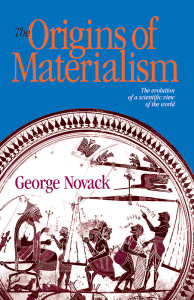
A brilliant introduction to the philosophical concept of materialism and its relevance to contemporary science and culture In this eye-opening, intellectually stimulating appreciation of a fascinating school of philosophy, Terry Eagleton makes a powerful argument that materialism is at the center of today's important scientific and cultural as well as philosophical debates. The author reveals entirely fresh ways of considering the values and beliefs of three very different materialists-Marx, Nietzsche, and Wittgenstein-drawing striking comparisons between their philosophies while reflecting on a wide array of topics, from ideology and history to language, ethics, and the aesthetic. Cogently demonstrating how it is our bodies and corporeal activity that make thought and consciousness possible, Eagleton's book is a valuable exposition on philosophic thought that strikes to the heart of how we think about ourselves and live in the world.
'He has lost neither his bracing self-certainty nor his caustic sense of humour. . . . Eagleton's central argument is straightforward and suggestive.'-Josh Cohen, New Statesman
'Materialist thinkers of various stripes have been struggling of late to renew our sense of 'the commons.' They would do well to take to heart Terry Eagleton's new, eminently commonsensical elaboration of the concept of materialism. Eagleton partners up with Marx, Nietzsche, Freud and Wittgenstein to awaken us to the materialism we already live, to which we have always already committed, in our embodied practices. We thereby come to see how the natural history of our forms of life implicates us in a creaturely solidarity with one another, the elaboration of which constitutes the conflict-ridden realm of politics. Eagleton's uncommonly luminous prose holds out the promise that a genuinely common life - call it ordinary life - for creatures such as us might yet be achievable.'-Eric L. Santner, author of On Creaturely Life
'This is a well written and engaging book packed with interesting observations, analyses, some quite brilliant insights, and not a few jokes.'-Paul O'Grady, editor of The Consolations of Philosophy --.





